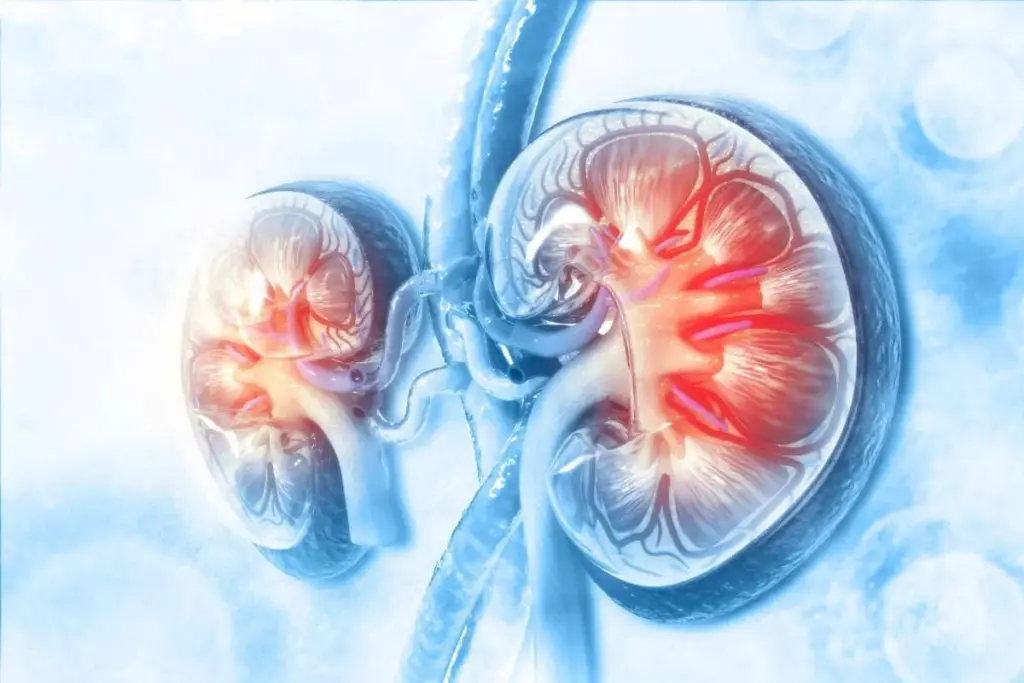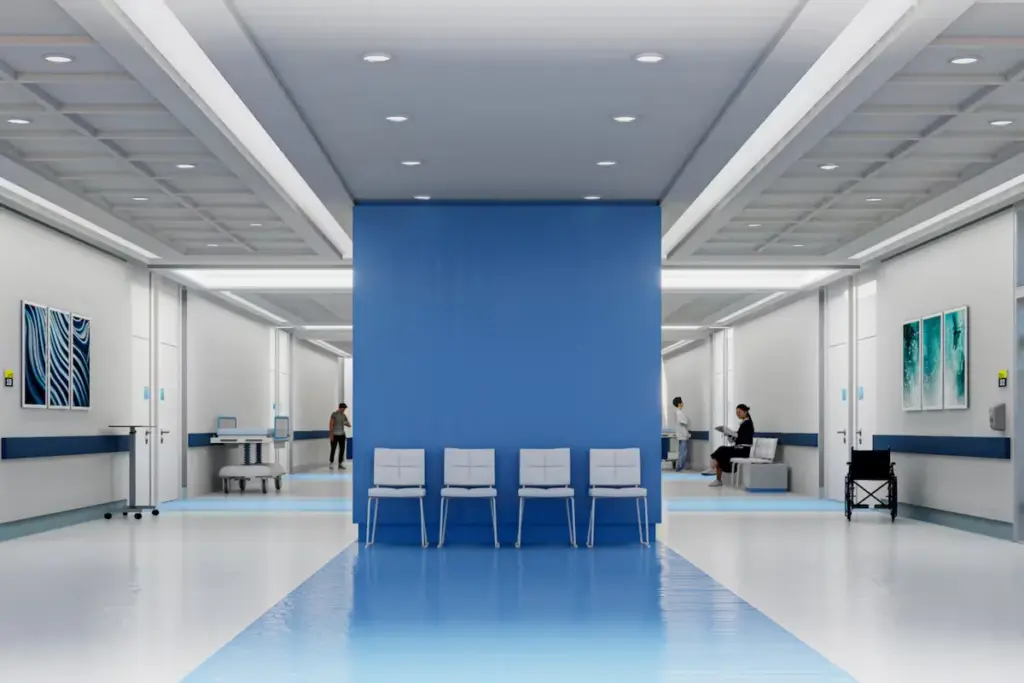
Prostate cancer is a common cancer worldwide. Radical prostatectomy (RP) is often recommended for early-stage prostate cancer.
Impotence, or erectile dysfunction (ED), is a common side effect after prostate surgery. It can be very distressing for men. It affects their quality of life and intimate relationships.
At Liv Hospital, we focus on the link between prostatectomy and sexual function. Our team is dedicated to giving you the best answers and treatments. We aim to improve sexual function after prostate removal.
Key Takeaways
- Erectile dysfunction is a common side effect after prostate surgery.
- Recovery times for erectile function vary, typically ranging from 12 to 24 months.
- Liv Hospital’s patient-centered team offers advanced treatments for improving sexual function.
- Understanding the link between prostatectomy and impotence is key for managing expectations.
- Our team is committed to providing complete care and support for international patients.
Understanding Erectile Dysfunction After Prostate Surgery
The link between prostate surgery and erectile dysfunction is complex. Prostatectomy, or the removal of the prostate gland, is a common treatment for prostate cancer. This surgery can greatly affect a man’s sexual function.
The Relationship Between Prostate Surgery and Sexual Function
Prostate surgery can impact sexual function in many ways. The prostate gland is surrounded by nerves important for erections. During a prostatectomy, these nerves can get damaged, causing erectile dysfunction (ED). Understanding the factors that influence recovery is key for managing expectations.
Why Erectile Dysfunction Occurs Following Prostatectomy
Erectile dysfunction after prostatectomy mainly happens because of nerve damage during surgery. The amount of nerve damage can affect how severe ED is. Using nerve-sparing techniques can lower the risk, but most men will experience some ED. The emotional impact of ED should not be ignored, as it can harm a man’s quality of life and self-esteem.
| Factors Influencing ED Post-Prostatectomy | Description | Impact on ED |
|---|---|---|
| Nerve Damage | Damage to nerves surrounding the prostate during surgery | High |
| Nerve-Sparing Techniques | Surgical methods aimed at preserving nerve function | Reduces risk |
| Age and Pre-existing Conditions | Patient’s age and health status before surgery | Varies |
Knowing these factors can help manage expectations and find treatments for ED after prostate surgery.
The Prevalence of Impotence After Prostate Removal
Prostate removal surgery can affect a man’s ability to have an erection. This is a big concern for many men. Surgery for prostate cancer can improve life expectancy but may also change a man’s sexual life.
Statistics on Post-Prostatectomy Erectile Dysfunction
Research shows that erectile dysfunction (ED) after prostate surgery varies. It can affect between 14% and 90% of men, depending on the surgery and the surgeon. About 50% of men may struggle with ED long-term after surgery.
This information is important. It shows the need for men to talk about these risks with their doctors.
Short-Term vs. Long-Term Erectile Issues
There are two types of erectile dysfunction after prostate surgery. Short-term ED often gets better with time. Long-term ED, though, can be caused by nerve damage, age, and health issues.
Knowing this can help men understand their situation better. It also helps them find the right treatment.
How Long After Prostate Surgery Does Impotence Last?
Knowing how long it takes to get back erectile function after prostate surgery is key. It helps set realistic hopes for patients. The journey to recovery is complex, with many things affecting how long it takes to get over erectile issues.
Typical Recovery Timeframes
Most people see improvements in erectile function between 12 to 24 months after surgery. During this time, the level of dysfunction can vary. Younger patients usually bounce back quicker than older ones. The healing process is vital to avoid permanent damage and help nerves and blood vessels recover.
Factors That Influence Recovery Duration
Several things can affect how long it takes to regain erectile function after prostate surgery. These include:
| Factor | Description | Impact on Recovery |
|---|---|---|
| Age | Patient’s age at the time of surgery | Younger patients tend to recover faster |
| Nerve-Sparing Techniques | Use of nerve-sparing techniques during surgery | Preserves erectile function, leading to faster recovery |
| Rehabilitation Protocols | Post-surgery rehabilitation programs | Enhances recovery by preventing tissue damage |
Understanding these factors and typical recovery times helps patients plan their journey. It also helps them manage their hopes about getting back erectile function after prostate surgery.
Does Removing the Prostate Cause Impotence?
Removing the prostate gland can affect how well you can get an erection. This is because the prostate is close to nerves that help with erections. We will look into how removing the prostate impacts sex life and the importance of keeping nerves intact.
The Anatomical Connection Between Prostate and Erectile Function
The prostate gland is surrounded by nerves and blood vessels important for erections. Keeping these nerves and blood vessels safe during surgery is key for keeping sex life intact after prostate surgery. Because these nerves are so close to the prostate, removing it can harm them, causing erectile problems.
Nerve Damage During Surgery and Its Effects
Nerve damage during prostate surgery is a big risk for erectile problems after. The amount of nerve damage can affect how bad the erectile problems are. Doctors try to avoid damaging nerves by using special techniques. But, how well these techniques work depends on many things, like the patient’s health and the doctor’s skill.
It’s important to understand how the prostate and nerves work together for erections. Knowing about nerve damage risks during surgery helps manage expectations and find ways to treat erectile problems after prostate surgery.
Nerve-Sparing Prostatectomy and Erectile Function
Nerve-sparing prostatectomy is key in keeping erectile function after prostate surgery. This method tries to save the nerves around the prostate that help with erections. This way, patients are more likely to regain their sexual function after surgery.
How Nerve-Sparing Techniques Work
Nerve-sparing techniques carefully dissect around the prostate to find and save the nerves needed for erections. Surgeons use advanced techniques to avoid harming these nerves. The aim is to remove the prostate while keeping the nerves safe, lowering the chance of erectile problems.
The success of nerve-sparing prostatectomy depends on several things. These include the surgeon’s skill and the patient’s sexual function before surgery. Research shows that patients who get nerve-sparing surgery tend to have better recovery of their erections than those who don’t.
Success Rates and Limitations
Success rates for nerve-sparing prostatectomy vary. Some studies say up to 60% of patients can get their erections back within a year after surgery. But, success rates can be influenced by the patient’s age, their sexual function before surgery, and the surgeon’s skill.
Even with its benefits, nerve-sparing prostatectomy has its limits. It needs a very skilled surgeon, and even with nerve sparing, some patients might not get their erections back.
Age and Other Factors Affecting Erectile Recovery
Recovering from erectile dysfunction after prostate surgery is complex. It depends on many factors. Some men face erectile issues after surgery, but how long and how bad it is varies.
Why Younger Patients Often Recover Faster
Younger men usually get better faster from erectile problems after surgery. They often have better blood flow and nerves. Studies show men under 60 might get back their erectile function sooner than older men.
Younger men’s better health and quicker recovery help them bounce back faster.
Pre-Existing Conditions That Impact Recovery
Health issues before surgery can affect how well men recover. Problems like diabetes, high blood pressure, and heart disease can make it harder. Smoking and not being active can also slow down recovery.
It’s key for patients to talk about their health with their doctors. This helps understand how these factors might affect their recovery.
Can You Have Erections After Prostate Removal?
Men facing prostate removal surgery often wonder about their future with erections. The good news is that many can regain this ability. This is thanks to early treatment and the right rehabilitation plans.
Realistic Expectations for Erectile Function Recovery
Recovering from prostate surgery takes time and patience. It’s important to have realistic expectations about how long it will take. Everyone’s recovery is different.
Recovering isn’t just about getting erections back. It also means managing any complications that might arise. Working closely with your doctor is key to a successful recovery plan.
The Process of Erectile Function Return
Several things affect when and if you can get erections again. These include the surgery method, your age, and your sexual health before surgery. Nerve-sparing techniques during surgery can greatly help.
| Factor | Influence on Erectile Function Recovery |
|---|---|
| Surgical Technique | Nerve-sparing techniques improve recovery chances |
| Patient’s Age | Younger patients tend to recover faster |
| Pre-Surgery Erectile Function | Men with better pre-surgery erectile function recover more effectively |
Knowing these factors and setting realistic expectations can help. This way, men can better understand and prepare for their recovery. It can also improve their chances of getting erections again after surgery.
Medications for Treating Post-Prostatectomy Erectile Dysfunction
Erectile dysfunction after prostate surgery is often treated with medicines. These drugs help men regain their sexual function.
PDE-5 Inhibitors: Tadalafil, Sildenafil, and Others
PDE-5 inhibitors are a common treatment for erectile dysfunction after prostate surgery. Tadalafil and sildenafil are two well-known medications in this class. They increase blood flow to the penis, making erections possible.
Research shows that PDE-5 inhibitors can greatly improve erectile function in men after prostate surgery. The success of these drugs can differ for each person. Yet, they are often the first choice for treatment.
| PDE-5 Inhibitor | Dosage | Common Side Effects |
|---|---|---|
| Sildenafil | 25mg, 50mg, 100mg | Headache, flushing, dyspepsia |
| Tadalafil | 2.5mg, 5mg, 10mg, 20mg | Headache, back pain, myalgia |
When to Start Medication Therapy
The right time to start medication for erectile dysfunction after prostate surgery varies. We suggest talking to your healthcare provider about it within the first few months after surgery.
Starting PDE-5 inhibitors early might help improve recovery. But, the decision to start should consider each patient’s needs and health.
Understanding the available medications and their benefits helps men make informed choices about their treatment.
Non-Medication Treatments for Erectile Dysfunction After Prostatectomy
Men dealing with erectile dysfunction after prostate surgery have many non-medication options. These choices are great for those who don’t want to or can’t take erectile dysfunction meds.
There are several non-medication treatments for erectile dysfunction after prostate surgery. These include vacuum erection devices, penile injection therapies, and penile implants. We’ll look at each one in more detail.
Vacuum Erection Devices
Vacuum erection devices (VEDs) are a non-invasive way to treat erectile dysfunction. They work by creating a vacuum around the penis, drawing blood into it. Then, a constriction ring is used to keep the erection.
Penile Injection Therapies
Penile injection therapies involve injecting medication into the penis to get an erection. This method can be highly effective for men with erectile dysfunction after prostate surgery. The injections usually contain prostaglandin E1 or a mix of medications.
Penile Implants for Persistent ED
For men with persistent erectile dysfunction, penile implants are a long-term solution. There are two main types: inflatable and semi-rigid implants. Inflatable implants are more common and allow for a more natural erection.
The choice to get a penile implant should be made after careful thought and talking to a healthcare provider.
These non-medication treatments can greatly help men with erectile dysfunction after prostate surgery. They offer alternatives to medication and help restore sexual function.
The Psychological Impact and Partner Communication
Prostate surgery can deeply affect men’s mental health and relationships. It can lead to feelings of inadequacy and depression. Erectile dysfunction (ED) after surgery is a big concern for many.
Managing Expectations and Mental Health
It’s important to manage what you expect before and after surgery. Talking openly with your doctor about ED and its management is key. Staying positive and seeking help when needed can greatly improve your recovery.
Discussing Sexual Changes With Your Partner
Talking about sexual changes with your partner is vital for a healthy relationship. Open communication helps in understanding each other’s feelings. It can make you both feel less stressed and anxious about ED.
Exploring new ways of intimacy can strengthen your bond. It helps you support each other during tough times.
Conclusion: Navigating the Road to Recovery
Recovering from erectile dysfunction after prostate surgery takes time and a full plan. We’ve learned that many things affect how well a man can get an erection again. This includes how old he was when he had surgery and if he needed radiation therapy later, as shown in a study on the National Center for Biotechnology Information website.
Getting better involves more than just medicine. It also means making lifestyle changes and getting emotional support. At 12, 24, and 60 months after surgery, many men can control their bladder and have erections. But, the ability to have erections strong enough for sex gets worse over time.
We stress the need for patience and sticking to the recovery plan. Having a supportive partner is also key. By knowing what affects recovery and using a variety of methods, men can better their chances of getting back to normal after surgery.
FAQ
Does removing the prostate cause impotence?
Removing the prostate might cause erectile dysfunction due to nerve damage. But, how much it affects you depends on the surgery method and your health.
How long does erectile dysfunction last after prostate surgery?
Erectile dysfunction after prostate surgery can last differently for everyone. Some men might get back to normal in a few months. Others might take a year or more. Age, health before surgery, and the surgery method play a big role.
Can you have erections after prostate removal?
Yes, it’s possible to have erections after removing the prostate. How soon and how well you can get erections depends on several factors. These include the surgery method, your age, and any health issues you had before.
What are the treatment options for erectile dysfunction after prostatectomy?
There are many ways to treat erectile dysfunction after prostate surgery. Options include medicines like tadalafil and sildenafil, vacuum devices, injections, and implants. The best choice depends on what you need and want.
How do nerve-sparing techniques impact erectile function after prostate surgery?
Nerve-sparing techniques try to keep the nerves around the prostate safe during surgery. This can help you keep your ability to get erections after surgery.
What is the role of age in erectile recovery after prostate surgery?
Age is very important for recovering from erectile dysfunction after prostate surgery. Younger men usually recover faster and better. Older men might face more challenges because of other health issues.
Can medications help treat erectile dysfunction after prostate surgery?
Yes, medicines like PDE-5 inhibitors can help with erectile dysfunction after prostate surgery. They help by improving blood flow to the penis, making it easier to get erections.
What are the non-medication treatments available for erectile dysfunction after prostatectomy?
There are non-medication treatments for erectile dysfunction after prostate surgery. These include vacuum devices, injections, and implants. They can be good options if you don’t want to take medicines or if medicines don’t work for you.
How can partners communicate effectively about sexual changes after prostate surgery?
Talking openly with your partner is key to dealing with the emotional side of erectile dysfunction after prostate surgery. Discussing your feelings and expectations can help keep your relationship strong and supportive.
What is the psychological impact of erectile dysfunction after prostate surgery?
Erectile dysfunction after prostate surgery can really affect a man’s mental health. It can lower his self-esteem and confidence. Getting support and talking openly with your partner are important for managing these feelings.
Does removing the prostate cause impotence?
Removing the prostate might cause erectile dysfunction due to nerve damage. But, how much it affects you depends on the surgery method and your health.
How long does erectile dysfunction last after prostate surgery?
Erectile dysfunction after prostate surgery can last differently for everyone. Some men might get back to normal in a few months. Others might take a year or more. Age, health before surgery, and the surgery method play a big role.
Can you have erections after prostate removal?
Yes, it’s possible to have erections after removing the prostate. How soon and how well you can get erections depends on several factors. These include the surgery method, your age, and any health issues you had before.
What are the treatment options for erectile dysfunction after prostatectomy?
There are many ways to treat erectile dysfunction after prostate surgery. Options include medicines like tadalafil and sildenafil, vacuum devices, injections, and implants. The best choice depends on what you need and want.
How do nerve-sparing techniques impact erectile function after prostate surgery?
Nerve-sparing techniques try to keep the nerves around the prostate safe during surgery. This can help you keep your ability to get erections after surgery.
What is the role of age in erectile recovery after prostate surgery?
Age is very important for recovering from erectile dysfunction after prostate surgery. Younger men usually recover faster and better. Older men might face more challenges because of other health issues.
Can medications help treat erectile dysfunction after prostate surgery?
Yes, medicines like PDE-5 inhibitors can help with erectile dysfunction after prostate surgery. They help by improving blood flow to the penis, making it easier to get erections.
What are the non-medication treatments available for erectile dysfunction after prostatectomy?
There are non-medication treatments for erectile dysfunction after prostate surgery. These include vacuum devices, injections, and implants. They can be good options if you don’t want to take medicines or if medicines don’t work for you.
How can partners communicate effectively about sexual changes after prostate surgery?
Talking openly with your partner is key to dealing with the emotional side of erectile dysfunction after prostate surgery. Discussing your feelings and expectations can help keep your relationship strong and supportive.
What is the psychological impact of erectile dysfunction after prostate surgery?
Erectile dysfunction after prostate surgery can really affect a man’s mental health. It can lower his self-esteem and confidence. Getting support and talking openly with your partner are important for managing these feelings.
References
- Cancer Treatment Centers of America (CTCA): https://www.cancercenter.com/cancer-types/prostate-cancer/treatments/prostatectomy/erectile-dysfunction
- National Center for Biotechnology Information (NCBI) / PMC: https://pmc.ncbi.nlm.nih.gov/articles/PMC3739076/
- Kapadi MD: https://www.kapadiamd.com/posts/why-can-it-take-so-long-to-regain-erectile-function-after-prostatectomy/
- UC Davis Health: https://health.ucdavis.edu/urology/specialties/male_infertility_and_sexual_dysfunction/Male-Reproductive-Sexual-Health/prostate_cancer_surgery_recovery.html
- Mount Sinai: https://www.mountsinai.org/care/urology/services/robotic-surgery/da-vinci/sex-after-surgery










